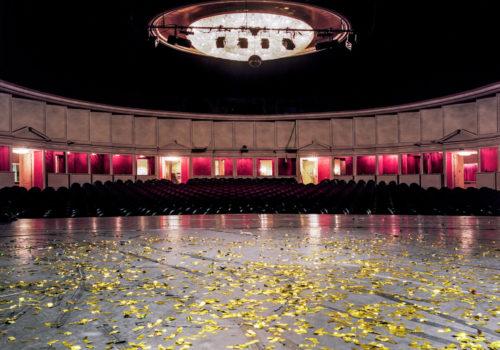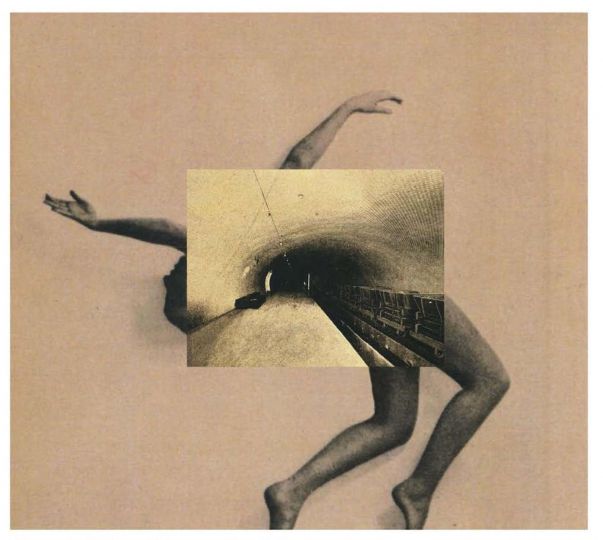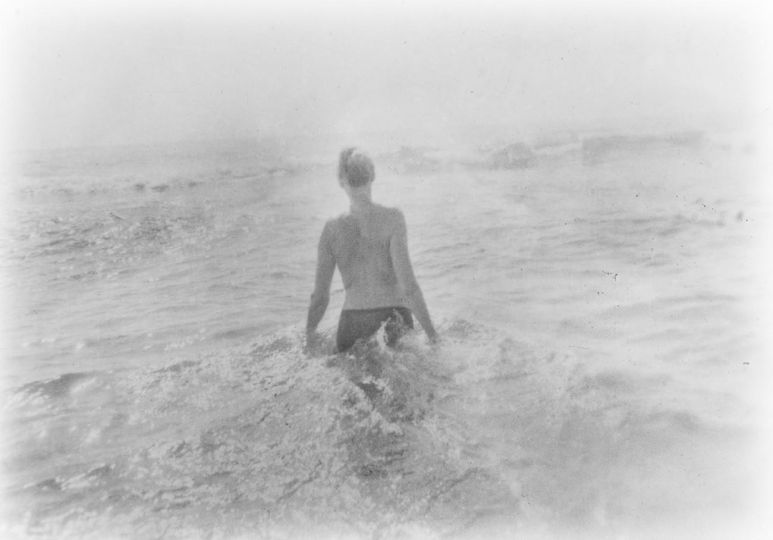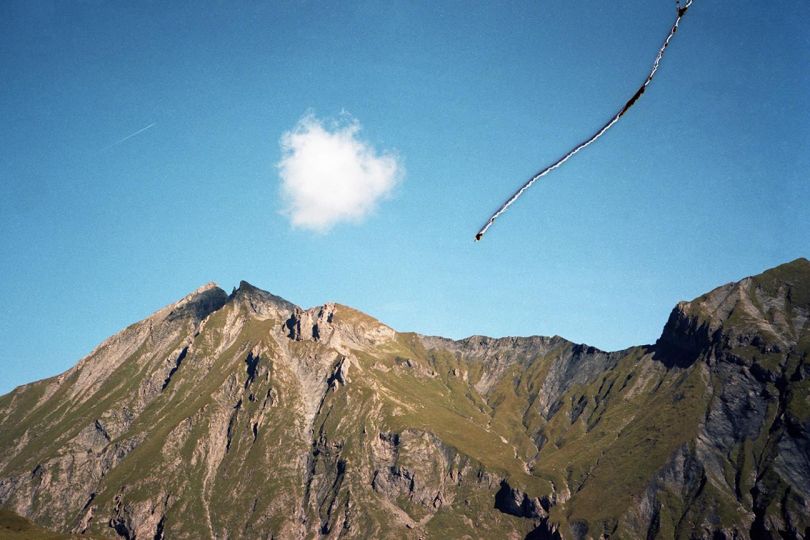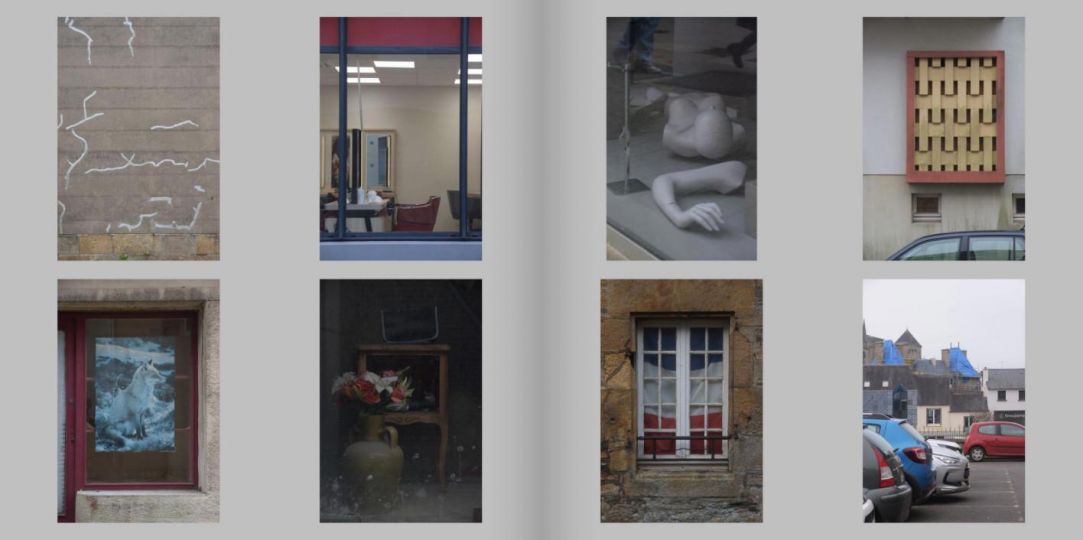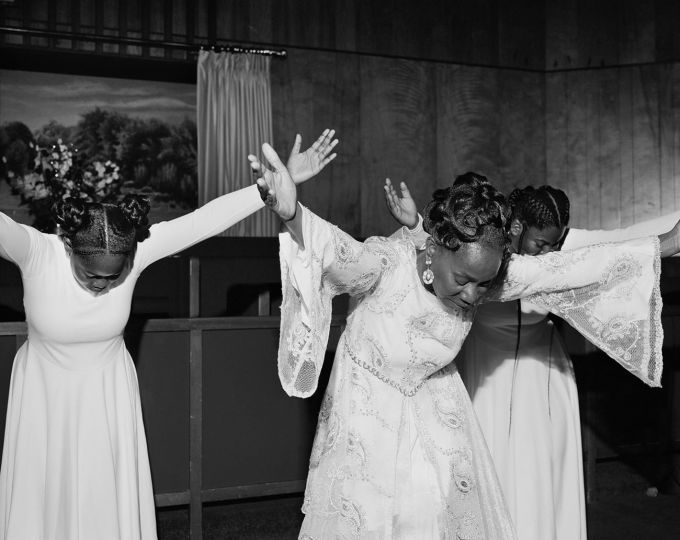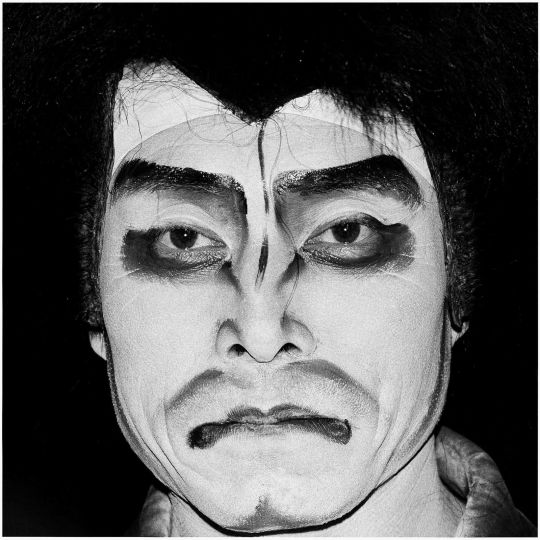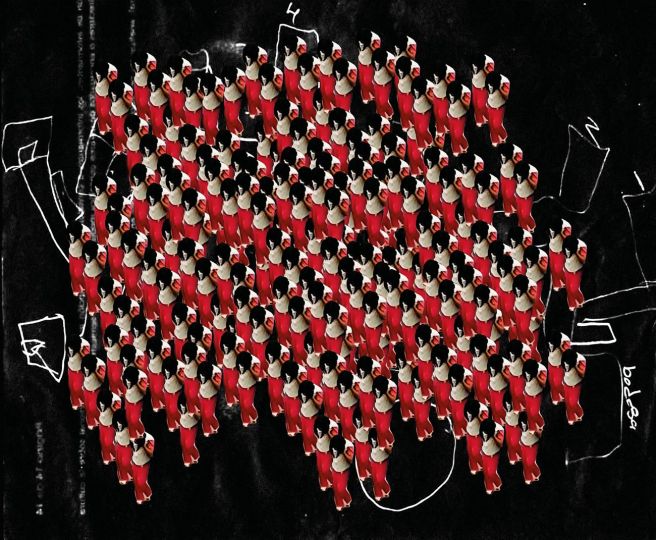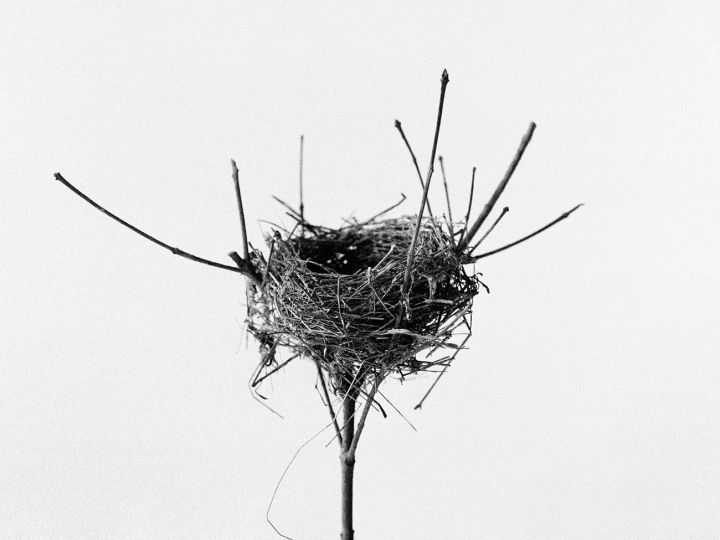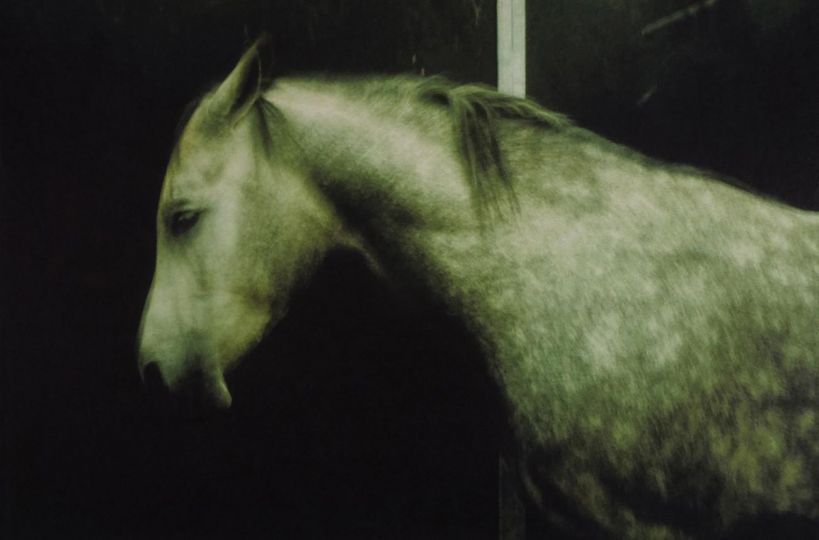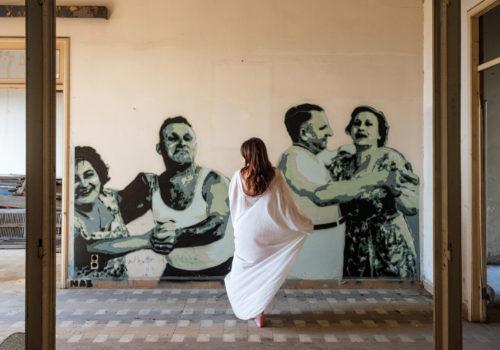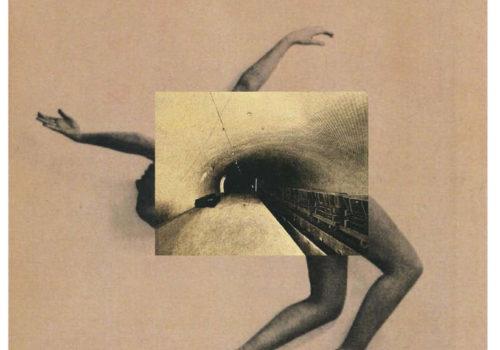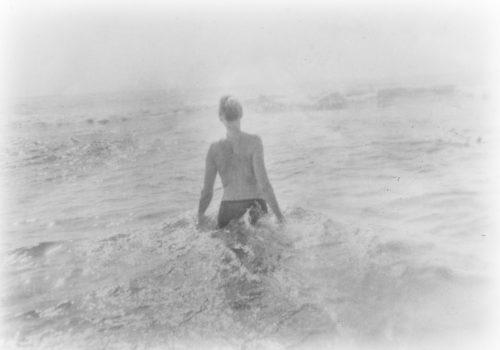Anna Lehmann-Brauns “Stages” is the new book, published by Hartmann Projects and an exhibition at the project room of the Helmut Newton Foundation, through 10 November 2024. Matthias Harder, the director of the Newton Foundation in Berlin, writes in the introduction of the book :
Light and shadow, and very soft, improbably lush colors can be found in harmonious balance in Anna Lehmann-Brauns’s photographs. In some, we see found or constructed spaces, melancholy land- and cityscapes, vistas and panoramas, while in others, the spatial depth is deliberately distorted. The Berlin-based photographer focuses very subtly on a few visual details; sometimes practically ghostly situations arise, such as when curtains in front of an open window billow in a breath of wind. The slight blur leads to an illusion of movement, and in our minds, we expand the frozen interior so that it becomes something sequential, even cinematic. Many places in Lehmann-Brauns’s photographs could very well be stages or set designs—and her photos at times resemble film stills. We are familiar with these kinds of situations, and other, comparable ones from our own views and memories, yet it is in Lehmann-Brauns’s pictures that they first develop a special poetry of their own, the magic of the beauty in what is past.
It all began with the lovingly equipped doll-sized models of rooms she built, created, and photographed toward the end of her studies at the Hochschule für Grafik und Buchkunst (The Academy of Fine Arts) in Leipzig. Even then, she played with the notion of authenticity, with illusion and reality. On closer inspection, though, you eventually recognized the model-like qualities of this early series of pictures, which she is now—many years later—continuing to pursue. Some of the light-filled interiors are children’s bedrooms, where bottles or furniture have been turned over, alluding to a moment of horror that could transform the entire scene in the next second. Space can be understood as a stage not only in her pictures of Berlin theaters, but also in the empty LGBT+ bars in San Francisco, which is the subject of another one of her series. Lehmann-Brauns is interested in photo sequences in general. In each and every one of the series’ individual images there exists an intriguing, richly associative narrative that even develops further from one picture to the next in the series. It is as if we are going from bar to bar, before they are open or after they have closed—and that corresponds to the specific situation of each photograph.
People do not exist in her photographs—only the traces of them do. Or, to put it another way: we seem to sense them. It looks as if they have all just left the room, or perhaps the stage. There is no one in the empty seats on the ferry to the Princes’ Islands, in the hotel lobby, at the bar, or at the billiard table in the Berlin bars; nobody is going to the pool or the beach. Now and then, the absence of our fellow humans tips the atmosphere into the dystopian, which is in a flash recaptured and balanced out by the intense, even optimistic colors.
The list of sites she has photographed corresponds to, among other things, the succession of renowned travel grants the photographer has received after submitting her previous photo series: Istanbul, San Francisco, Beijing, supplemented by trips to Italy and Mexico.
The places where she lives, though—Berlin and Leipzig—remain the sites for most of her work. Her series on junk shops was created in these cities, mainly in 2020, during the coronavirus pandemic, which nearly brought everyone’s social lives to a standstill. This is reflected in the shop windows of these antique stores, which the photographer has completely reinterpreted via this appropriation; the objects from past decades are presented as if they have fallen out of time altogether.
Despite their layers of dust and their old-fashioned aesthetic, the globes, clocks, busts of Goethe, porcelain figures, glass ashtrays, or stuffed animals represent their former owners. Occasionally, a small price tag destroys the illusion of timelessness, bringing us back to the reality of capitalism’s commercial carousel. The current whereabouts of abandoned, sometimes expensive, sometimes nearly worthless items turns them into survivors, in a way, and they call out, sometimes in a shrill and loud manner, the fact of their existence to the passersby looking into shop windows. It is a contemporary view of a diffused temporality, which, like each and every photographic image, naturally only highlights an interim state.
The same is true of the bars and the theaters, some of which vanished shortly after these pictures were taken. For the theater on the Kurfürstendamm, which Lehmann-Brauns documented in her artistic style in 2018, just before it was demolished, the last curtain had literally fallen. It is likely that very few of the theatrical props survived, and since then, the Ku’damm Theater moved to the old Schiller Theater and then to Potsdamer Platz. These temporary uses and conversions are typical of Berlin, a city that finds itself in a constant state of change, that “is always becoming and never is,” to quote Karl Scheffler from the so-called Roaring Twenties. What was true a century ago is still true in this city. Anna Lehmann-Brauns’s series of pictures document a specific situation, yet at the same time symbolizes the constant, radical changes that occur in a large urban system. In that sense, this new publication and the presentation in the Helmut Newton Foundation’s project room, parallel to ‘Berlin, Berlin’ on the first floor, is an extremely useful addition.
(Matthias Harder, from the introduction of „Anna Lehmann-Brauns, Stages“, Hartmann 2024)
Anna Lehmann-Brauns : Stages
Hartmann Projects
28 × 32,5 cm
120 pages, ca. 75 illustrations
Texts by Barbara Esch Marowski and Matthias Harder
Design: Heimann + Schwantes, Berlin
German/English
ISBN 978-3-96070-112-5
€ 40.00 incl. VAT plus shipping costs
https://www.hartmannprojects.com/
Helmut Newton Foundation
Im Museum für Fotografie
Jebensstraße 2
10623 Berlin, Germany
https://helmut-newton-foundation.org/en/

